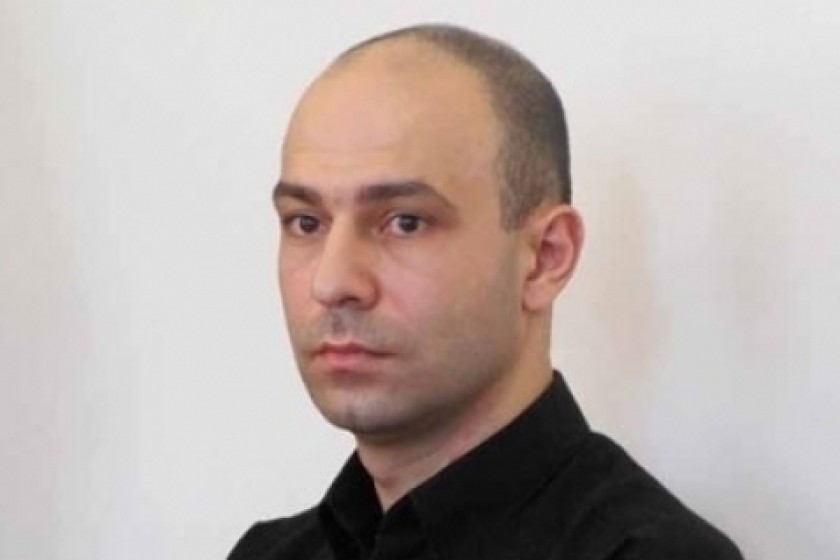
Mher Yenokyan Writes to Hetq About Life Behind Prison Walls
Mher Yenokyan – has served 18 years of a life sentence in Nubarashen penitentiary
It’s been a longtime that I have communicated with you via reporters. News outlets are those bridges that help me continue my conversation with people, and for this I cannot be ungrateful.
But to my great amazement, at the start of the new year, I received an offer from Hetq’s chief editor to write articles for the site and also have the possibility of becoming a columnist.
To be honest, I have yet to see this electronic written environment and do not know what the internet looks like. I have simply read literature about the worldwide web. My relatives have also supplied me with media excerpts. This is the way I follow Hetq’s series of “distorted fates”, where details of old criminal cases are raised that have been left out of the public eye and haven’t been exposed. I know that the internet is a powerful tool and that contemporary individuals cannot imagine their life without that domain. In Armenian prisons, the computer is seen as a medium of communication. Lifers are usually not allowed to have computers. Perhaps only three lifers have been allowed to use computers provided by their relatives during certain hours on working days as university extension students. (Arsen Artzruni, who has spent twenty years in prison, and Georgy Khanamiryan study psychology and I study law)
When I learnt of the Hetq offer, one of the administration officials at the Nubarashen Correctional Facility even welcomed the idea, for according to the law, inmates must be guaranteed work. Nevertheless, the number of inmates employed is next to nothing. And lifers generally do not have the opportunity to work, being locked up in a cell for 23 hours a day. We only get one hour per day for walking. I believe that such lack of work also exists in the reformatories as well. During a TV news program I saw how large groups of men wearing black clothes were squatting under the walls fingering their worry beads. Instead of using this healthy labor force, the system subjects people to degradation.
What objective does the system pursue by isolating thousands of healthy men from society, while at the same time providing not one opportunity of rehabilitation or reintegration? I am sure there are those who do not know how to read or write, who have to trade or profession. By keeping them shut up for years in inhumane and awful conditions, just who does the system think it is returning to society? In whose best interest is this closed chain, in which people wind up having made just one slip-up, oftentimes by accident, and instead of lending them a helping hand the system makes them into something evil. I once write that being able not to become bad in prison was heroism enough. The answers to these rhetorical questions are clear as day for anyone with a half logical mind. Everything that happens in prison is left to the abilities of the individual - the stronger ones will, and the straighter ones backbone, the more impervious one is to breaking…
I try to fill my day by doing beneficial things. The 24 hours in the day aren’t enough, even though readers might think I have all the time in the world. I am preparing for exams and am reading up on the history of law of foreign countries. On the side, I’m also doing Armenian to Russian translation and vice-versa. The Russian version of Henrik Shatiryan’s novel “Kharan” (mark or stamp); about his 23 years in a Soviet prison will soon be released. I did the translation from the Armenian with the help of mathematician Gourgen Martirosyan, with whom I spent four months in the same cell some 18 years ago. The actor Vardan Petrosyan, now in custody over that tragic automobile accident, put up the money for the publication of the Armenian original. I should add that I will be participating in a book competition organized by Orange Telecom with my new short story “Tepi tsmah azatutyun” (Towards lifelong freedom). So now you have a clue about how I spend my time. I promise to write about this in greater detail.
I thank Hetq for giving me such an opportunity. I wish to raise my voice on important matters and also, as a future lawyer, to note how I perceive the solution of this or that issue. From time to time I will also work to garnish my letters with thematic sketches.
P.S. This New Year’s, just like the previous one, all 105 of us ‘lifers’ received presents from Seta Mavian, the French-Armenian magazine Nouvelles d’Armenie’s correspondent in Armenia. For this, we thank her. It is nice when you are not neglected, when people remember you.
 Videos
Videos Photos
Photos
Comments (3)
Write a comment